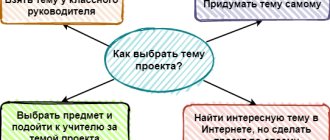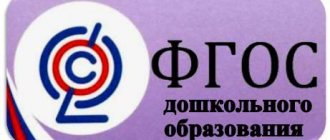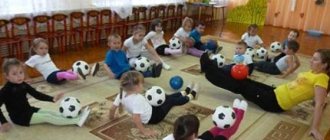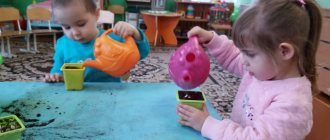Project for interaction with parents in kindergarten
Project of interaction with parents of a preschool educational institution “Journey to the land of good relations”
Author: Belobaeva Elena Valerievna MBDOU “Combined Kindergarten No. 47”, Achinsk, Krasnoyarsk Territory Project of interaction with parents (legal representatives) of pupils with a social and personal orientation.
Relevance of the project Social development in preschool childhood is aimed at developing in a child age-appropriate social competence as a basic value of a child’s personality. Family and preschool are two important institutions for the socialization of children. And although their educational functions are different, their interaction is necessary for the comprehensive development of the child. Involving parents in solving problematic problems of family education encourages them to analyze educational techniques, search for a more appropriate method of parental behavior, exercises the logic and evidence of pedagogical reasoning, and develops their sense of pedagogical tact. Analysis by parents of children's behavior helps them see their teaching experience from the outside, provides an opportunity to reflect on the motives of the child's actions, and teaches them to understand them from the point of view of his mental and age-related needs. However, there are a number of problems that do not allow ensuring an atmosphere of goodwill and comfort in communication between parent and child, namely: - the peculiarity of the modern family is associated with a reduction in free time for parents, overload at work - all this leads to a deterioration in their physical and mental condition, increased irritability, fatigue, stress; — material values dominate over spiritual ones, so children have distorted ideas about kindness, mercy, generosity, and justice. Children are marked by emotional, volitional, spiritual immaturity; — parents habitually throw out their emotions on their children, while blaming the child for both external problems and domestic troubles. The child finds himself in a situation of complete dependence on the mood, emotions and reactions of his parents, which affects his mental health. Based on the above, a project of interaction with parents with a social and personal orientation “Journey to the Land of Good Relations” has been developed. Goal: Increasing the competence of parents on issues of social and personal development of children. Objectives: - establish cooperation between the educational institution and the family; — to activate the educational skills of parents and direct them to constructive partnerships with the child; — to guide parents towards the revival of moral and ethical norms and traditions of the family way of life. Project participants: preschool educational institutions specialists, teachers, parents, children Implementation period: within a year Place of implementation: 663153, Krasnoyarsk region, Achinsk city, 24 quarter, building 13, MBDOU “Combined kindergarten No. 47”. Project type: practice-oriented Project support resources: Organizational:
The activities of project participants are regulated in accordance with the basic general educational program of preschool education of MBDOU "D/s No. 47", the annual plan and the project implementation plan.
Informational:
- scientific-methodological, fiction;
- mass media; - Internet resource. Staffing:
- administration of the preschool educational institution;
- educators; - musical director; — physical education instructor; - teacher - psychologist. Financial support:
- budget of the Institution;
- Parents' charitable funds. Logistics:
- multimedia projector, - screen, - laptop, - music center.
Expected result: 1. Creation of a system of comprehensive work with parents. 2. Psychological and pedagogical education of parents on issues of social and personal development of children. 3. Generalization of the experience of family education. Principles of interaction between the teacher and parents: - the ability to create a friendly atmosphere conducive to dialogue; — attention to the problems of parents, their subjective experiences; — ability to provide psychological assistance; — focus on stimulating parents’ self-education; - the ability to see the slightest achievements and instill confidence in success; - a positive attitude to talk with parents about any problem; — manifestation of pedagogical tact and moral and ethical standards when working with parents; - sincerely want to help in a difficult pedagogical situation; - inadmissibility of comparing the guilty child with others. When considering a conflict situation, analyze the situation itself, and not the personal qualities of the child and his parents. Forms of work with parents: - questionnaires;
— consultations; — viewing direct educational activities; - conversations; - Parent meeting; - workshop; — information sheet, reminders, recommendations; — joint events: holidays, entertainment, competitions; - Open Day; - family presentation. Project implementation stages:
Stage 1 - research
- “Do you know your child?”
— questioning; — “My child and his individual characteristics” - questionnaire - essay; - “Relationships in the family” - test - survey; — “Family traditions and norms” — survey; — “Helpline” - promotion. Stage 2 – preparatory
– processing of the received information;
— selection of visual propaganda; — study of methodological literature; — development of a plan for joint activities. Stage 3 - practical
Information block: - “Five recipes for getting rid of anger” - memo;
— “What is a culture of communication?” — information sheet; - “Personal example is the best way to instill good manners in a child” - memo; — “The authority of parents is a necessary condition for proper upbringing” — consultation; — “How to introduce children to norms of behavior” — consultation; - “Sow a habit...” - information sheet; — “The game is a school of moral behavior” — consultation; — Individual consultations at the request of parents. Practical block: - “Discussing problematic situations” - workshop (September); - “The moral law is within us” - parents’ meeting (October); — “Friendship lives among us” — open day, viewing of direct educational activities (November); — “Holiday in our house” — creative workshop (December); — “Let's talk about politeness” — round table (January); — “Young Games” — sports competitions with the participation of dads (February); — “Our mothers are always jacks of all trades” — culinary duel (March); - “Family of the Year” - competition - presentation (April): exhibition of family photographs; exhibition of joint works; filling out a family (genealogical) tree; a story about family traditions; games, competitions, performances. — Performance assessment (May). Stage 4 – final
– assessment of the effectiveness of the project. Studying parents' satisfaction with the work of an educational institution: - questionnaire method - conversations with parents. Increasing the level of activity, psychological and pedagogical culture of parents: - taking into account the participation of parents in various events; — observations; - conversations. Determining the level of activity of the teacher with parents. — use of self-assessment sheets.
We recommend watching:
Parent meeting on traffic rules in the preparatory group Creative workshop in kindergarten “Making laboratory materials with your own hands” Lesson with parents in kindergarten. Abstract Literary quiz on fairy tales for kindergarten
Similar articles:
Plan of interaction with families of children of the middle group of general developmental orientation
Methodological recommendations for drawing up an individual development program
Project activities in working with families
The priority function of cooperation between a preschool institution and a family is to introduce parents to the normative components of preschool education, informing them about the tasks, content and methods of education in kindergarten. Advanced teaching practitioners reinforce the concept of “collaboration” with parents with the concept of “interaction” as a category reflecting the processes of the influence of objects on each other, mutual conditioning and generation of one object by another.
Interaction is a universal form of movement and development that determines the existence and structural organization of any material system.
It seems that one of the methods of active learning - the project method - can be considered an effective form of increasing the educational culture of parents and modernizing the information and educational function of cooperation.
A feature of project activities in the preschool education system is that the child cannot yet independently find contradictions in the environment, formulate a problem, or determine a goal (intention). Therefore, in the educational process of a preschool educational institution, project activities are in the nature of cooperation, in which children and teachers of the preschool educational institution take part, and parents and other family members are also involved on a voluntary basis.
Modern researchers - psychologists (V.P. Bederzhanova, O.S. Gazman, V.G. Maralov, V.A. Sitarov) Fr.
As the tasks are solved, a competent adult helps the child find the necessary means and methods for this, and often introduces children to new things that are not yet known to him.
Relying on the help of adults, children seek a solution to the problem through questions to their parents, joint trips to the library, reading children's educational and reference publications; trips, hikes; observations and excursions, classes in hobby groups and studios. Together with their parents, they are engaged in productive activities: collecting collections, designing family albums, drawing, sculpting, sewing, crafting, cooking, experimenting, inventing and composing. At the same time, it is very important that adults do not do anything for children and do not interfere with their ability to demonstrate maximum abilities, independence, initiative and creativity. As a rule, the topic of projects becomes a specific section of the educational program. But if it arose on the initiative of the children themselves, it is very valuable and must definitely find support from adults.
The objectives of teaching project activities are different for each age of preschoolers. For example, teachers L.S. Kiseleva, G.S. Lagoda and M.B. Zuykova in primary preschool age defines them as:
- children’s entry into problem and play situations (the leading role of an adult);
— activation of looking for ways to resolve a problematic situation (together with an adult);
— formation of initial prerequisites for research activities (practical experience).
In older preschool age this is:
— formation of prerequisites for search activity and intellectual initiative;
- developing the ability to determine possible methods of solving a problem with the help of an adult, and then independently;
— developing the ability to use these methods to help solve problems;
— developing a desire to use special terminology, conducting a constructive conversation in the process of joint research activities.
Parents can be given varying degrees of participation in the project: leader, participation at all or individual stages; consultant, logistical support, etc.
Festivals, exhibitions and family design competitions are becoming traditional.
Family design is a step towards increasing the competence of parents and the possibility of productive interaction between adults and children.
Approximate distribution of joint design actions of parents and children at the design stages.
| Design stages | Parents' actions | Children's activities |
| Preparatory | Formulate problems, determine topics, goals (why) and deadlines. They plan upcoming activities and determine means. | They take part in discussing the problem, the plan for future work, and determining means of implementation. |
| Analytical | They conduct a joint search for information in the literature, the Internet, and seek help from specialists. They analyze, discuss, and offer a choice of an analogue model. They draw up an algorithm of actions, distribute responsibilities and assignments. | Organize a joint search for information. They ask adults questions and look for answers on their own. They defend their positions in the discussion, accept instructions, and negotiate with other design participants. |
| Basic | They involve children in achieving the intended plan according to a pre-developed algorithm. They carry out basic joint activities (excursion, going to the library, reading literature, learning, examining, comparing, agreeing, experimenting, purchasing, designing, making, conversations, discussions, etc.). They prepare surprises and prizes secretly from others. Conduct joint and individual rehearsals. | Participate in excursions, going to the library, reading literature, conversations, discussions. They prepare surprises and ask for help when it is impossible to do anything on their own. |
| Presentation | Within the stipulated period, they participate in the presentation (by project participants and guests) of the product of the project activity. | Along with adults, they participate in the presentation (by project participants and guests) of the product of project activity on an equal basis. |
| reflective | They ask questions: What happened? Did you get what you wanted? Did we learn anything new? What surprised and pleased us? What did we like most? What should you change next time? | They answer and ask questions. The topics for the next projects are outlined. |
Project development algorithm (according to E.S. Evdokimova)
| Stages | Tasks | Activities of the project group | Activities of the scientific and methodological service |
| Elementary | Definition of the problem (topic). Selecting a group of participants. | Clarification of available information, discussion of the task. | Motivation for design, explanation of the purpose of the project. |
| Planning | Problem analysis. Identification of information sources. Setting objectives and choosing criteria for evaluating results. Distribution of roles in the team. | Formation of tasks, accumulation of information. Selection and justification of success criteria. | Assistance in analysis and synthesis (at the request of the group). Observation. |
| Decision-making | Collection and clarification of information. Discussion of alternatives. Choosing the optimal option. Clarification of activity plans. | Working with information. Synthesis and analysis of ideas. | Observation, consultations. |
| Performance | Project implementation. | Work on the project, its design. | Observation, advice (at the request of the group). |
| Evaluation of results | Analysis of project implementation and achieved results (successes and failures). | Participation in collective project analysis and self-assessment. | Observation. Direction of the analysis process (if it is needed). |
| Project protection | Preparation for defense. Rationale for the design process. Explanation of the results obtained, their evaluation. | Project protection. Participation in collective assessment of project results. | Participation in collective analysis and evaluation of project results. |
Mastering project activities by preschool children.
| Design stage activities | Age | ||
| 4-5 years | 5-6 years | 6-7 years | |
| Preparatory | An integrative beginning that meets the needs of children. Identification of problems to adults. | Identification (by an adult or a child) of an issue that meets the needs of both parties. | Identification of an issue (by children or adults) that meets the needs of the children or both. |
| Goal setting | Determination by adults of the purpose of the project, its motivation. | Joint determination of the project goal and upcoming activities. Predicting the result. | Children independently determine the goal of the project and the motive for the upcoming activity. Predicting the result. |
| Planning | Involving children in planning activities and implementing the plan. | Planning activities by children with little help from adults, determining means and ways to implement the project. | Planning activities by children (with the possible participation of an adult as a partner), determining the means of implementing the project. |
| Performing | The joint movement of adults and children towards the result: “doing together according to the model”, carrying out individual simple tasks. | Children's implementation of the project, differentiated assistance from adults. | Children’s implementation of a project, creative disputes, reaching an agreement, mutual learning, mutual assistance. |
| Presentation | Presentation of the product of project activities. | Presentation of the product of project activities. | Presentation of the product of project activities. |
| reflective | Joint analysis of the project implementation, comprehension of the result. | Discussion of the result, progress of work, everyone’s actions, finding out the reasons for successes and failures. | Discussion of the results of the progress of work, everyone’s actions, finding out the reasons for successes and failures. |
| Design | Determine design prospects together with children. | Determining the prospects for the development of design. | |
Used Books:
1. L.D. Morozov "Pedagogical design in preschool educational institutions: from theory to practice." Publishing house "Creative Center Sphere" - Moscow, 2010.
2. A.A. Mayer, O.I. Davydov “555 ideas for involving parents in the life of a kindergarten.” Publishing house "Creative Center Sphere" - Moscow, 2011.
3. V.S. Gainullova, E.M. Zotov “Kindergarten and School of the Future: the basics of cooperation and partnership.” Publishing house "Creative Center Sphere" - Moscow, 2011.




